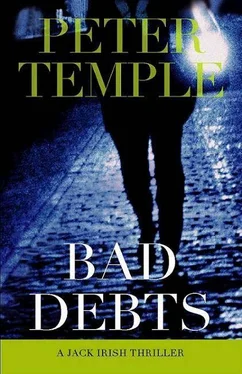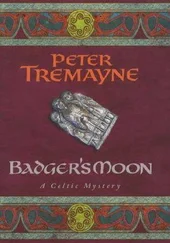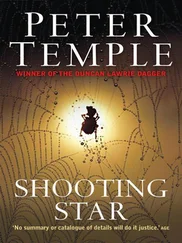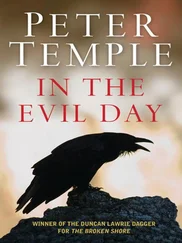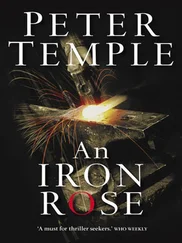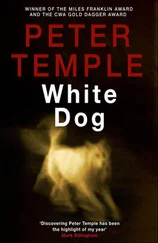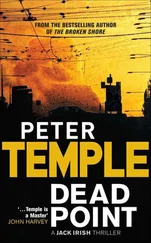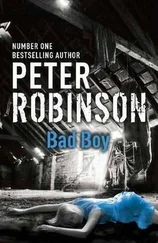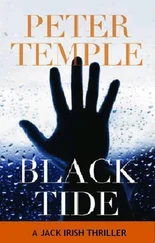Claude cleared his throat. ‘But are some of the developers supporters of your party?’
You could hear Marcia’s sigh. It combined disbelief with contempt. ‘Are you and Mr Kerr proposing that supporters of a governing party should be excluded from commercial life?’ she said. Each word was coated with scorn.
Claude’s tone went sugary. ‘I think you’re shooting the messenger here, Dr Saunders,’ he said. ‘I’m merely-’
‘Don’t try to hide behind the messenger argument,’ snapped Marcia. ‘You media leftovers from the sixties are seldom merely doing anything. But you might try to make your agenda a little less obvious.’
It went on like this. Claude kept trying to wrap himself in the rags of his dignity and Marcia kept tearing them off. I enjoyed Claude’s discomfort but there was something chilling about Dr Marcia Saunders, PhD in physical education from the University of Kansas and former stockbroker. She wasn’t the same person who’d smiled down from the election billboards.
After half an hour of traffic snarl, I’d had enough. I did a savage left turn in the face of traffic into a one-way street. One crime led to another, I had a few altercations and near-misses but I got to Father Gorman’s address near Albert Park Lake with all the paint on.
I parked in a no-parking zone. Col Boon could knock a fellow cop and get the pension, he could beat parking tickets on this Celica.
Father Gorman’s address was an oddly tapering new building. The tenants weren’t short of space: there were eight floors and only six brass plates on the plinth outside. The one for the sixth floor said: Safe Hands Foundation.
The name meant something to me. I remembered as I reached the glass doors: Ronnie Bishop had once worked for the Safe Hands Foundation. Helping homeless children, his mother had said. Trying to root them had been the view of his former neighbour in Morton Street.
Thc tenants were fussy about who came to visit them. A security man with a snub nose, pale eyes and skin the colour of dirty underclothing kept me captive between two sets of glass doors while he wrote down my particulars on a clipboard. A tattoo peeped out from under his wristwatch. He wasn’t too flash at writing.
Then he wanted my driver’s licence.
‘I’m not trying to cash a cheque here, sonny,’ I said. ‘Just phone the man.’
Tight little smile. ‘The body corporate lays down the security procedures.’ Flat Queensland voice. Pause. ‘Sir.’
‘This isn’t Pentridge,’ I said. ‘Didn’t they retrain you for this job? Just phone.’
He held my gaze briefly, but I’d got him in one. ‘I’ll check,’ he said.
He made his call, came back, let me in, escorted me to the lift, up to the sixth floor, rang the bell on one of the two doors in the foyer, waited until a handsome dark youth opened the door. Through all this, he said nothing and exuded hatred.
‘Come this way,’ the youth said. His hair was drawn back tightly in a ponytail and he had the superior and slightly miffed manner of the waiters in most Melbourne restaurants.
I followed him through a large, elegant room and down a passage lined with framed architectural drawings to a teak six-panel door. The youth pushed open the door.
The voice from within was rich, warm and full of authority. ‘Thank you, Francis. Do remember to knock next time. Mr Irish, come in. Oh, Francis, bring us a pot of coffee, there’s a good boy.’
Father Gorman was coming round from behind a rosewood table with a column and platform base. On it were three or four files, a desk blotter and a fountain pen. He was a large man, probably in his sixties, big shoulders, crisp grey hair with just a hint of a wave brushed back, even features tanned the colour of milk fudge. He was wearing a navy-blue, double-breasted suit over a brilliantly white shirt. His tie had what looked like tiny camels on it.
He held out a hand. It was a surprisingly hard hand for a man of the cloth.
‘Pleasure to meet you, Jack,’ he said. ‘Let’s sit down.’
He led the way down the long panelled room to a setting of club armchairs and two sofas around a low military chest. A butler’s table with bottles and decanters stood against the inside wall, which was covered with paintings, mostly landscapes. French doors in one exterior wall gave on to a terrace. Deep windows in the other provided a view to the Westgate Bridge and beyond. The beyond was dark with rain.
‘Beautiful, isn’t it?’ he said, gesturing with both hands at the room, the view. ‘I thank the Lord for it every day. And I thank Joseph Kwitny, the foundation’s benefactor whose generosity allows an instrument of the Lord’s will to live and work in such splendour.’
I got the feeling he had said this piece before but he said it very well. I sat down first and he took a chair beside me, close enough to lean out and touch.
‘Well,’ he said, ‘and what part of Ireland do the Irish come from?’
‘Not a well-known part,’ I said. ‘The Jewish quarter of Hamburg. My great-grandfather’s name was Isadore Reich. He ran away to sea and jumped ship in Melbourne. When he wrote his name down as I. Reich for his first employer, the man pronounced it as I. Rish. That’s what he became. Irish. I’m thinking of changing it back.’
Father Gorman laughed, a sound of deep enjoyment that washed over you, made you want to laugh with him, made you happy that you’d amused him. And while he was laughing, crinkles of pleasure around his eyes, he leaned over and touched my arm.
‘Don’t you ever do that,’ he said. ‘You wouldn’t be able to tell that wonderful story any more. And you’d be hurting the whole line of dear departed Irishes.’ He leaned back and put his hands in his pockets. ‘Well now, Jack Irish, what can I tell you about Ronnie Bishop?’
I had told him on the phone that Ronnie was missing. ‘Why did he ring you?’ I asked.
‘Why, he wanted to come around and see me. I hadn’t seen him for years. I’ve known the lad a long time, you know.’
‘I gather he once worked for the foundation.’
‘Briefly. He wasn’t really suited to the work. Not that I say that in any detrimental sense, mind. It’s special work, dealing with the young in distress. Not everyone has the gifts needed.’
‘And did he come around to see you?’
‘Of course. We talked for an hour and then I had to go to a meeting. That was…’ He raised his eyes to the ceiling. ‘That was last Friday.’
‘How was he?’
‘Well, Jack, what do you know of the man’s situation?’ He fixed me with a look of inquiry that said ‘Let’s trust each other.’
‘I gather he’s HIV-positive.’
Father Gorman took his hands out of his pockets, sat forward, put his fingertips together. The nails were manicured. He had a slim gold watch on his wrist. Dark hairs fought to get out from under it. He looked out at the view. ‘Yes,’ he said. ‘He told me that and I felt his pain and anger. And his fear.’
He turned his head to look at me, a clear, steady gaze.
‘I’m interested in why he came to Melbourne. Did he say anything about that to you?’ I asked.
‘I assumed he had come to see his family. He said he was staying with his mother.’
There was a sound at the doorway and the youth came in carrying a tray with a tall silver coffee pot. The small cups chattered as he dropped the tray on the table from a height of at least two inches.
‘Ah, Francis,’ said Father Gorman. ‘We may have to send you to waiter school. Perhaps in your home country.’ He was smiling broadly, but there was an edge to his tone, a hint of autumn on a warm wind.
The youth gave him a glance of pure malice, tossed his ponytail and left. Father Gorman’s eyes followed him. ‘Rescued from a life of abuse and poverty,’ he said. ‘But still uncertain of what the Lord wants for him.’
Читать дальше
